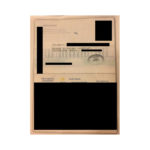Should We Raise The Drinking Age?

Every few years the question crops up: should the drinking age be raised to 21?
Often proponents of such a plan speak up after a tragic case involving teenagers and alcohol ends in fatality, as well as ongoing scientific research into the detrimental effects of alcohol on a still-developing young brain.
The O’Farrell governments’ one-punch laws are one example of a response to alcohol-fuelled violence and the tragic death of Thomas Kelly.
During the era of the Vietnam War, some argued that if they were old enough to be conscripted to go and fight for their country, they were old enough to have a drink before they left. The drinking age in Australia was 21 until the 1970s, when it was lowered by the Whitlam government.
But now some are calling for the drinking age in Australia to be raised back to 21.
Young people are over represented in injury statistics compared with other age brackets, particularly young males. According to one 2013 study, one in eight deaths of Australians aged under 25 is related to alcohol consumption.
60% of all police call-outs (and up to 90% at night) are alcohol related.
These statistics concern a growing number of police and medical experts, with four Australian professors now calling for the drinking age to be raised to 21.
Medical research has been around for some time now showing that the brain is not fully mature until around 25 years of age. Young people who abuse alcohol can sustain lasting brain damage, including shrinking of the brain.
One proponent for a higher drinking age is Professor John Toumbourou. He told Sunrise that the increase in alcohol-related violence should be reversed by making the drinking age higher, and changing the culture surrounding what he describes as Australia’s ‘love affair’ with alcohol.
He said that raising the drinking age sends a clear message about the health effects of alcohol on young people and will encourage the next generation to experience a society where moderate alcohol consumption is the norm.
According to evidence from studies in the US, Canada, New Zealand and Australia, those who start drinking later in life are more likely to be moderate drinkers. Support for a higher drinking age seems to have risen amongst adults (although not from within the younger age brackets).
Another concerning statistic relating to alcohol is its involvement in car accidents: the most common cause of injury deaths in young people is transport crashes. Young people (17-24 year olds) make up 15% of drivers and account for about 36% of all road fatalities.
If the drinking age was raised to 21, many young drivers have moved off their provisional licences (and the zero alcohol limit no longer applies) by they time they could legally drink.
It is suggested that this separation of ages between legally drinking and legally driving may lead to a decrease in the number of fatalities.
One US study showed that raising the minimum drinking age to 21 led to a reduced rate of drunk driving, as well as a reduction in other health threats such as heavy drinking, unsafe sex, suicide and dating violence.
Drink driving is serious, particularly if you are young and inexperienced with driving and the effects of alcohol.
In NSW, 27.3% of total PCA (Prescribed Concentration of Alcohol) cases were those aged under 24. While most people convicted (59.8%) got a fine, more serious penalties can apply.
Even if you don’t kill or seriously injure yourself or anyone else, you could still be up for some pretty heavy penalties if the police catch you.
Police have been breath-testing in NSW for over 30 years and have since breath-tested many millions of drivers. While the introduction of this policy met with public backlash (some clubs banned their local members of parliament from entering), police believe that it continues to save lives.
Going to court for a traffic offence?
If you are going to court for a traffic offence, call or email Sydney Criminal Lawyers anytime to arrange a free first consultation with an experienced, specialist traffic lawyer who will accurately advise you of your options, the best way forward, and fight for the optimal outcome in your specific situation.






